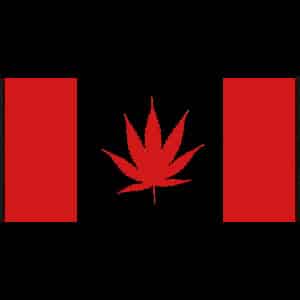In a report issued today, Canada’s largest addiction center called for marijuana legalization with a strict regulatory approach. The recommendation is based in harm reduction principles.
The Center for Addiction and Mental Health (CAMH) in Toronto made the call for legalization in its report Cannabis Policy Framework. It comes after an in-depth analysis of the health, social, and legal implications of marijuana use, as well as an examination of comparative marijuana policy, by CAMH scientists and policy experts.
“Canada’s current system of cannabis control is failing to prevent or reduce the harms associated with cannabis use,” said Dr. Jürgen Rehm, Director of the Social and Epidemiological Research Department at CAMH. “Based on a thorough review of the evidence, we believe that legalization combined with strict regulation of cannabis is the most effective means of reducing the harms associated with its use.”
The report found that 40% of Canadians have used marijuana at least once and 10% have used it in the past year. Among people aged 15 to 24 that figure jumps to 20%.
CAMH does not view marijuana as a benign substance and thus calls for a very strong regulatory approach.
“Cannabis use is associated with a variety of health harms like problems with cognitive and psychomotor functioning, respiratory issues, cannabis dependence and mental illness,” Rehm said. “For this reason, any reform of Canada’s system of cannabis control must include a strong focus on prevention and a range of interventions aimed at groups that are at higher risk of harm, including youth and people with a personal or family history of mental illness.”
But CAMH also clearly recognizes the harm derived from marijuana prohibition. The group noted that criminalization doesn’t deter use, but does drive users away from prevention, risk reduction, and treatment services, as well as exposing them to non-quality controlled substances.
CAMH is calling for a government monopoly on sales, as well as other restrictions.
“Legalization of cannabis must be governed by strict regulations that ensure it is not sold like other commodities,” Rehm said. “This would include a government monopoly on sales, limits on availability, a pricing system that discourages use of higher-harm products, and a ban on marketing.”
Canada’s governing Conservatives have proven extremely averse to marijuana law reform and have, in fact, moved in the opposite direction through measures such as instituting mandatory minimum sentencing for some marijuana cultivation offenses. The leader of the opposition Liberal Party, Justin Trudeau, on the other hand, is calling for marijuana legalization. National elections are set for next year.
“We’ve known for a long time that the existing approach to cannabis policy is not working,” said Dr. Rehm. “We want this framework to add to an informed discussion about the future of cannabis policy and to serve as a guide to the factors that need to be considered in order to come to a solution that is the most beneficial for public health. We believe that the best solution is a system of legalization combined with strict regulation of cannabis.”
Article From StoptheDrugWar.org – Creative Commons Licensing – Donate



























